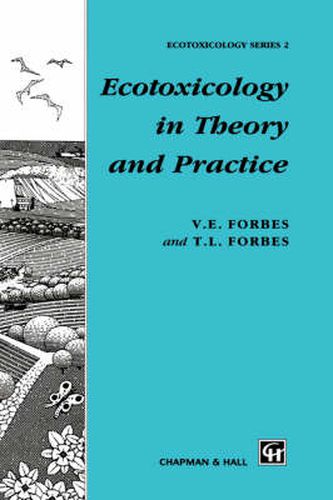Readings Newsletter
Become a Readings Member to make your shopping experience even easier.
Sign in or sign up for free!
You’re not far away from qualifying for FREE standard shipping within Australia
You’ve qualified for FREE standard shipping within Australia
The cart is loading…






This title is printed to order. This book may have been self-published. If so, we cannot guarantee the quality of the content. In the main most books will have gone through the editing process however some may not. We therefore suggest that you be aware of this before ordering this book. If in doubt check either the author or publisher’s details as we are unable to accept any returns unless they are faulty. Please contact us if you have any questions.
The second in a series of books on ecotoxicology, this book presents a discussion of a variety of theoretical and practical issues involved in the study of ecotoxicology. By concentrating on the key (and often controversial) issues, the book provides an introduction for those new to ecotoxicology while stimulating veterans in the field into lively debate. Ecotoxicologists are faced with many challenges that range from the theoretical and practical limitations in the detection of pollutant effects on ecosystems, to deciding on adequate definitions for pollutant impact and environmental quality , to the effective design, performance and interpretation of toxicity tests. This book addresses such issues and provides an in depth critique of current methodologies in ecotoxicology and a discussion of how the results of this science can best be applied to risk assessment and management decisions. Recent developments in ecotoxicology are assessed, promising approaches highlighted and future directions outlined. By focusing on the key issues in toxicity testing, this book challenges those working in the field of ecotoxicology to bridge the gap between two important processes - scientific understanding and decision making. Its aim is to spur debate and encourage a reassessment of current methodology. This book should be of interest to Ecotoxicologists (i.e. ecologists and toxicologists); pollution experts; Environmental Protection Agency personnel; and environmental scientists.
$9.00 standard shipping within Australia
FREE standard shipping within Australia for orders over $100.00
Express & International shipping calculated at checkout
This title is printed to order. This book may have been self-published. If so, we cannot guarantee the quality of the content. In the main most books will have gone through the editing process however some may not. We therefore suggest that you be aware of this before ordering this book. If in doubt check either the author or publisher’s details as we are unable to accept any returns unless they are faulty. Please contact us if you have any questions.
The second in a series of books on ecotoxicology, this book presents a discussion of a variety of theoretical and practical issues involved in the study of ecotoxicology. By concentrating on the key (and often controversial) issues, the book provides an introduction for those new to ecotoxicology while stimulating veterans in the field into lively debate. Ecotoxicologists are faced with many challenges that range from the theoretical and practical limitations in the detection of pollutant effects on ecosystems, to deciding on adequate definitions for pollutant impact and environmental quality , to the effective design, performance and interpretation of toxicity tests. This book addresses such issues and provides an in depth critique of current methodologies in ecotoxicology and a discussion of how the results of this science can best be applied to risk assessment and management decisions. Recent developments in ecotoxicology are assessed, promising approaches highlighted and future directions outlined. By focusing on the key issues in toxicity testing, this book challenges those working in the field of ecotoxicology to bridge the gap between two important processes - scientific understanding and decision making. Its aim is to spur debate and encourage a reassessment of current methodology. This book should be of interest to Ecotoxicologists (i.e. ecologists and toxicologists); pollution experts; Environmental Protection Agency personnel; and environmental scientists.